Sleep apnea is a common condition that causes breathing to stop while you sleep. This can happen several times throughout the night, preventing you from getting enough oxygen. If this sounds scary, it is. However, there are treatments available that help manage your breathing and avoid disruptions while you sleep. Here we share our professional sleep apnea explanation and look at the medical and dental treatments available.
Sleep Apnea Explanation – Exactly What Is It?
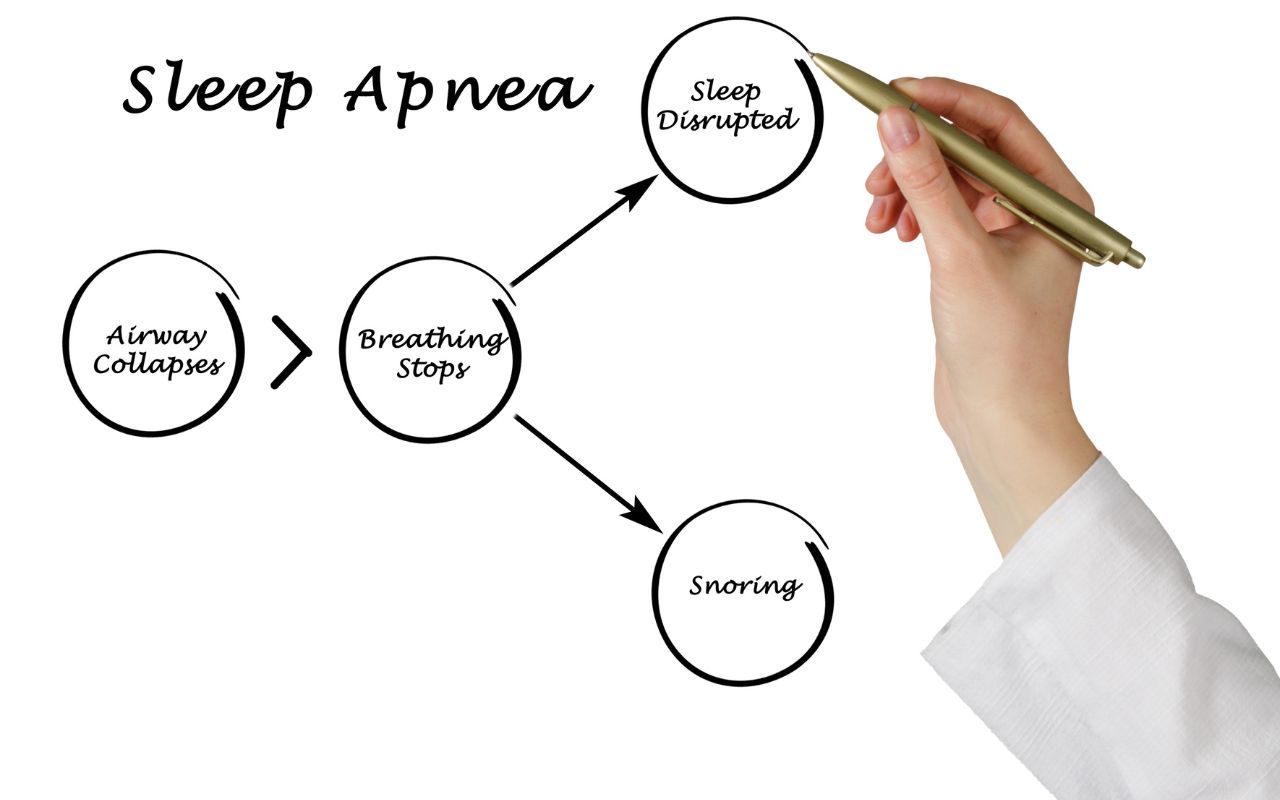
As mentioned, sleep apnea interrupts breathing while sleeping. As a result, it is considered a sleeping disorder. There are two types of sleep apnea:
- Obstructive sleep apnea where your upper airway becomes blocked due to issues such as being overweight, having large tonsils, or changes to hormone levels. In this case you experience breathing disruptions including either a reduction in breathing or complete stoppage of breathing several times a night.
- Central sleep apnea is related to brain signals that tell you to breathe. In this case, your brain doesn’t send proper signals to control your airway and chest muscles, resulting in disturbances while you sleep.
Some patients have both types, which is referred to as “mixed sleep apnea.”
What Are The Signs Of Sleep Apnea?
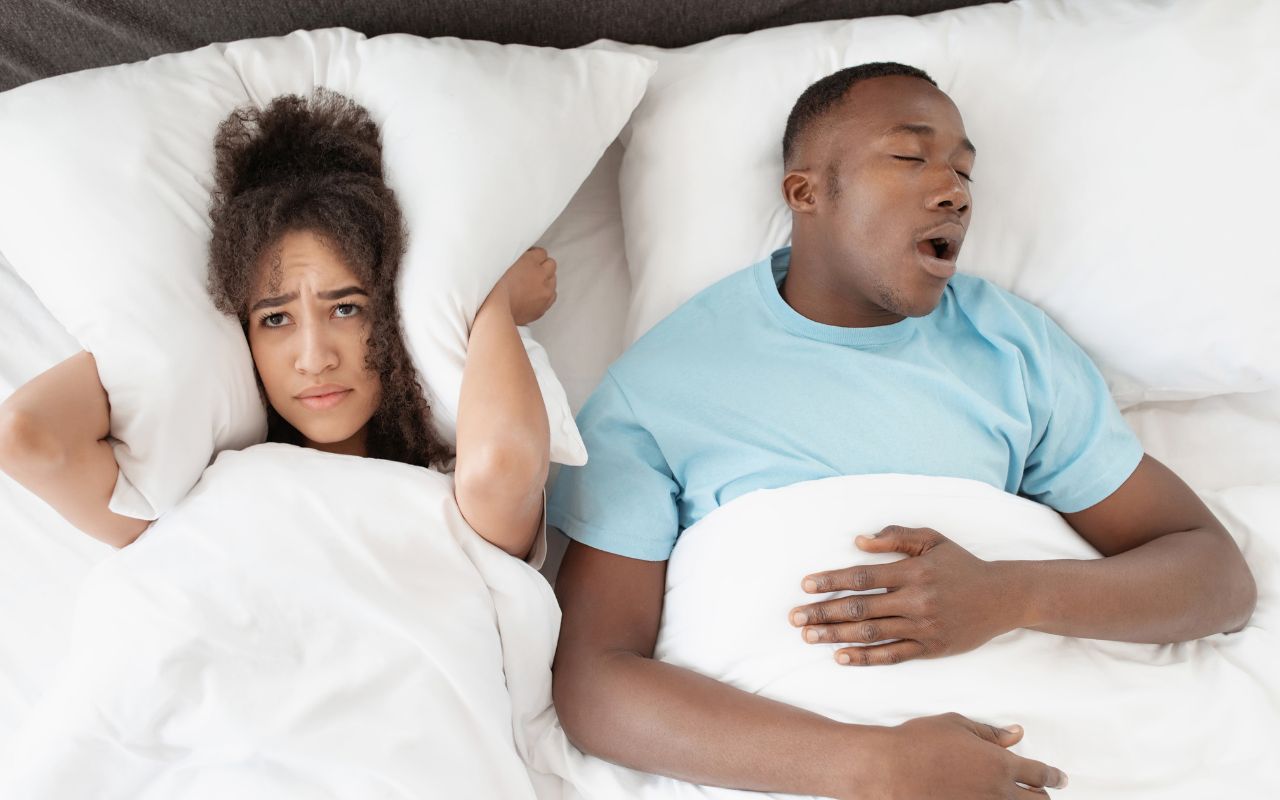
For adults, one of the most common signs you may have sleep apnea is that your partner mentions you are having issues breathing when sleeping, such as:
- Stopping and starting to breathe
- Loud snoring
- Gasping for breath
If you don’t have a partner, or they don’t mention any of the above, you might notice symptoms such as:
- Feeling sleepy all the time
- Trouble focusing or following instructions
- Slowed reaction times
- Waking with a dry mouth or headache
- Sexual dysfunction
- Decreased libido
- Waking up to urinate
- Waking up choking
Because sleep apnea can be dangerous, it’s important to speak to your healthcare provider as soon as you are aware of symptoms. If you find you wake suddenly feeling breathless, choking, or short of breath, confirming a sleep apnea diagnosis will ensure you receive proper treatment.
Children can also have sleep apnea, which can lead to the following:
- Becoming overactive
- New occurrences of bedwetting
- Worsening asthma symptoms
- Trouble focusing at school
Again, speaking to your doctor as soon as possible will help confirm a sleep apnea diagnosis and ensure your child receives the proper treatment.
What Are The Causes Of Sleep Apnea?
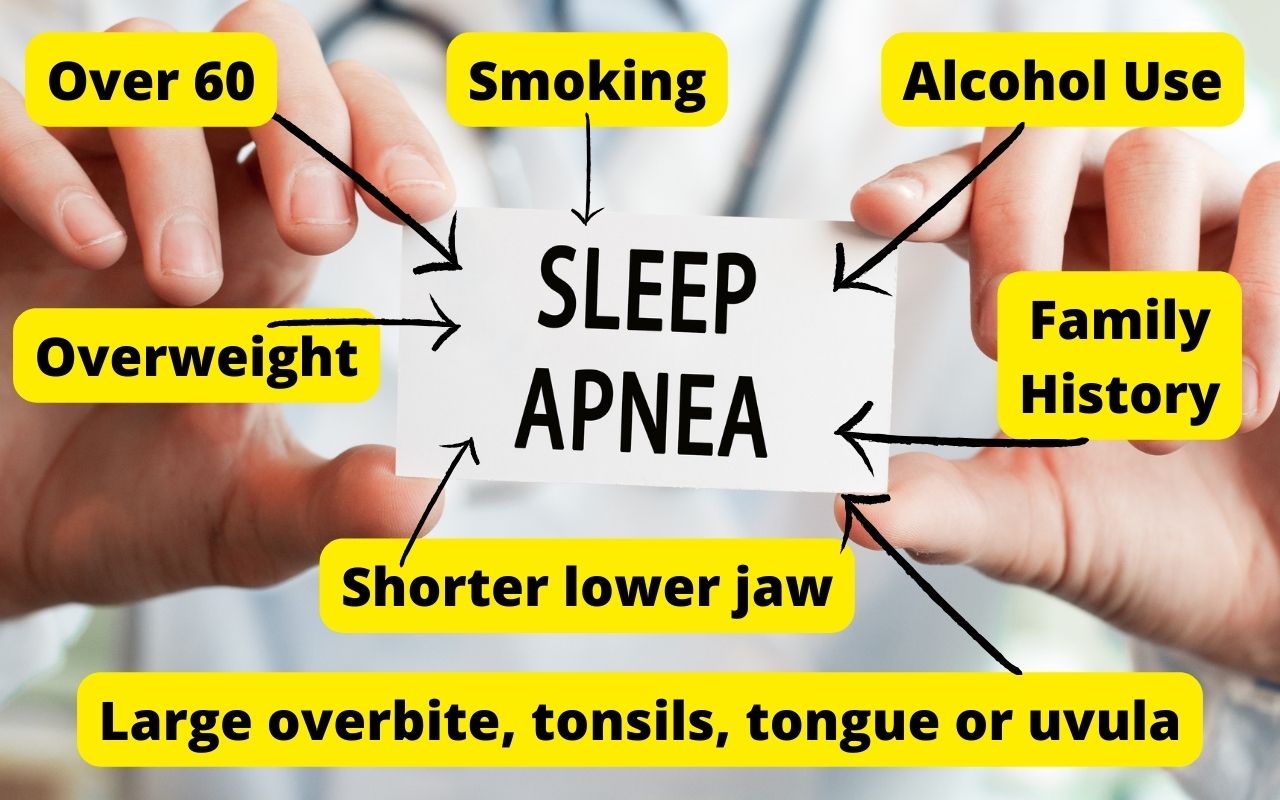
There are several factors believed to increase the risk of obstructive sleep apnea, including:
- Being over 60 years of age
- Being overweight or obese
- Family history
- Alcohol consumption and/or smoking
- A large overbite, tongue, tonsils, or uvula
- A shorter lower jaw
How Is Sleep Apnea Diagnosed?
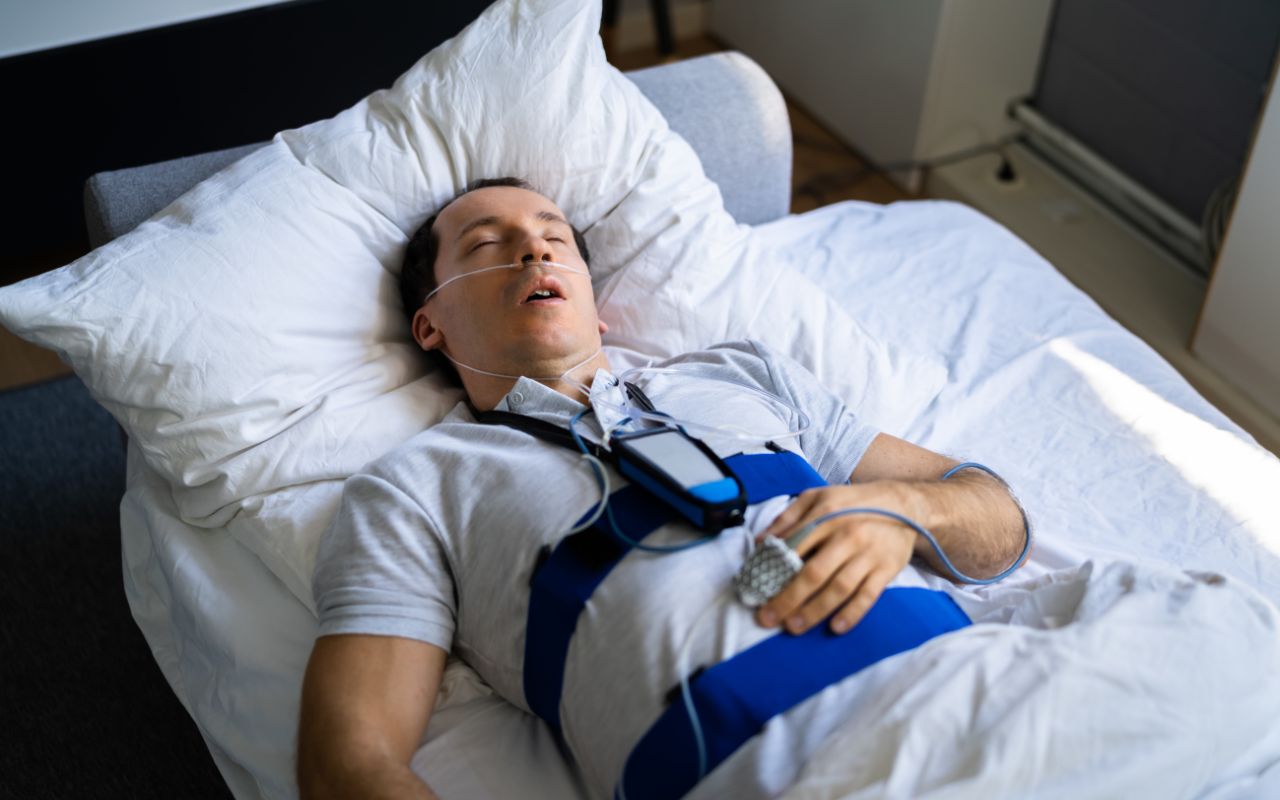
Typically, your doctor will consider your symptoms and rule out other possible causes through a series of questions, a physical examination, and in some cases, blood tests. If the diagnosis is confirmed it is also common for doctors to send you to a sleep disorder clinic to observe you during sleep to determine the severity of your sleep apnea. This will determine what treatment is required.
Some doctors prefer to have patients keep a sleep diary to track symptoms and often include input and observances from sleep partners. However, your dentist might also address sleep apnea if they feel you are at higher risk based on your dental health, weight, lifestyle habits, and overall health.
Are There Home Remedies For Sleep Apnea?
Yes, there are common home remedies that can help reduce mild symptoms of obstructive sleep apnea, including:
- Weight loss to reduce fat around the neck that can impair breathing at night
- Making healthy lifestyle changes that assist with weight management, including a healthy diet and exercise
- Quitting smoking to reduce the risk of swelled upper airways
- Avoiding drinking alcohol before bed as it relaxes the throat muscles, which causes snoring
- Using over-the-counter allergy medications or nasal decongestants to improve airflow and reduce nasal passage swelling
- Sleeping on your side using a body pillow to keep you from sleeping on your back
- Elevating your head, such as using special pillows or raising the head of your bed
- Practicing playing a wind instrument or singing to strengthen upper airway muscles
What Medical Interventions Are Available For Sleep Apnea?
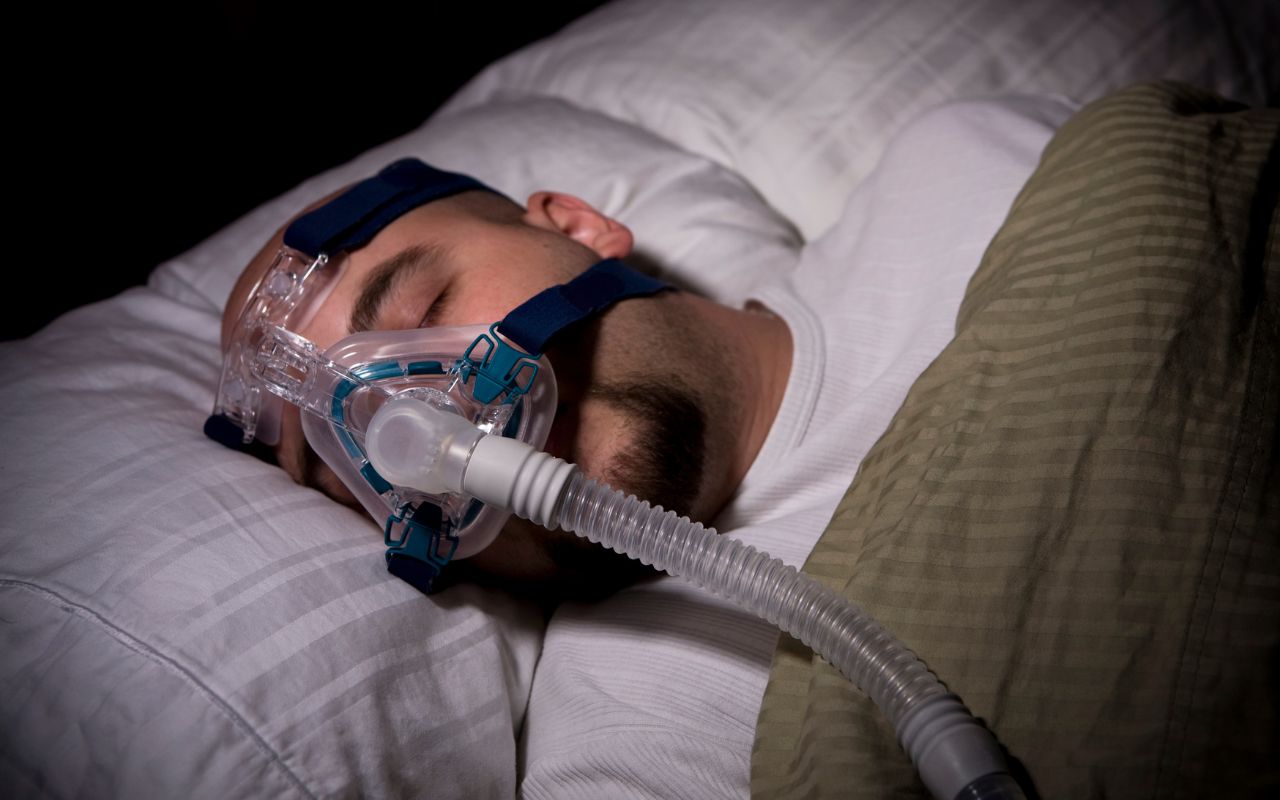
In severe cases, the most common treatment for sleep apnea is the use of a medical device called a continuous positive airway pressure (CPAP) machine. The machine uses a mask over the nose or mouth (or both) to provide extra positive airway pressure so airways don’t collapse during sleep.
Can Sleep Apnea Be Treated With Dental Appliances?
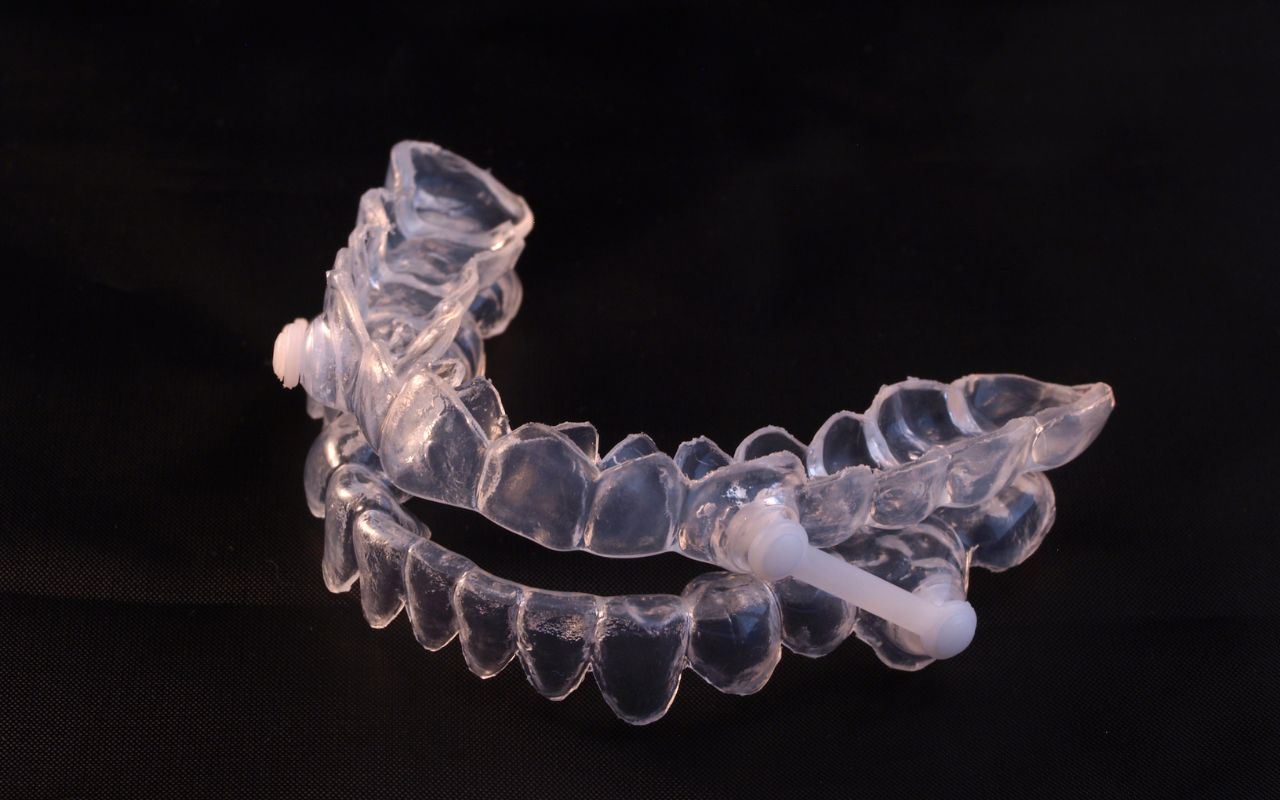
Dentists are often the first to diagnose sleep apnea based on signs they find during dental checkups. The condition of your teeth, jaw anatomy, tongue, and throat, as well as discussions regarding possible sleep apnea symptoms are part of a routine checkup for patients with high risk for the sleep disorder.
Whether you know you have sleep apnea or your dentist diagnoses it for you, they can provide dental treatment for sleep apnea using oral appliances. Oral appliance therapy or mandibular advancement devices are designed to move your lower jaw and/or tongue forward to keep them away from your throat which helps prevent obstructions.
These appliances are custom-fit and made of either acrylic or a mix of acrylic, nylon, or rubber. Most use dental trays worn on the upper and lower teeth, connected with hinges to adjust jaw and tongue position while you sleep. Your dentist can adjust the appliance based on your mandible protrusion.
Why Is Sleep Apnea Diagnosis So Important?
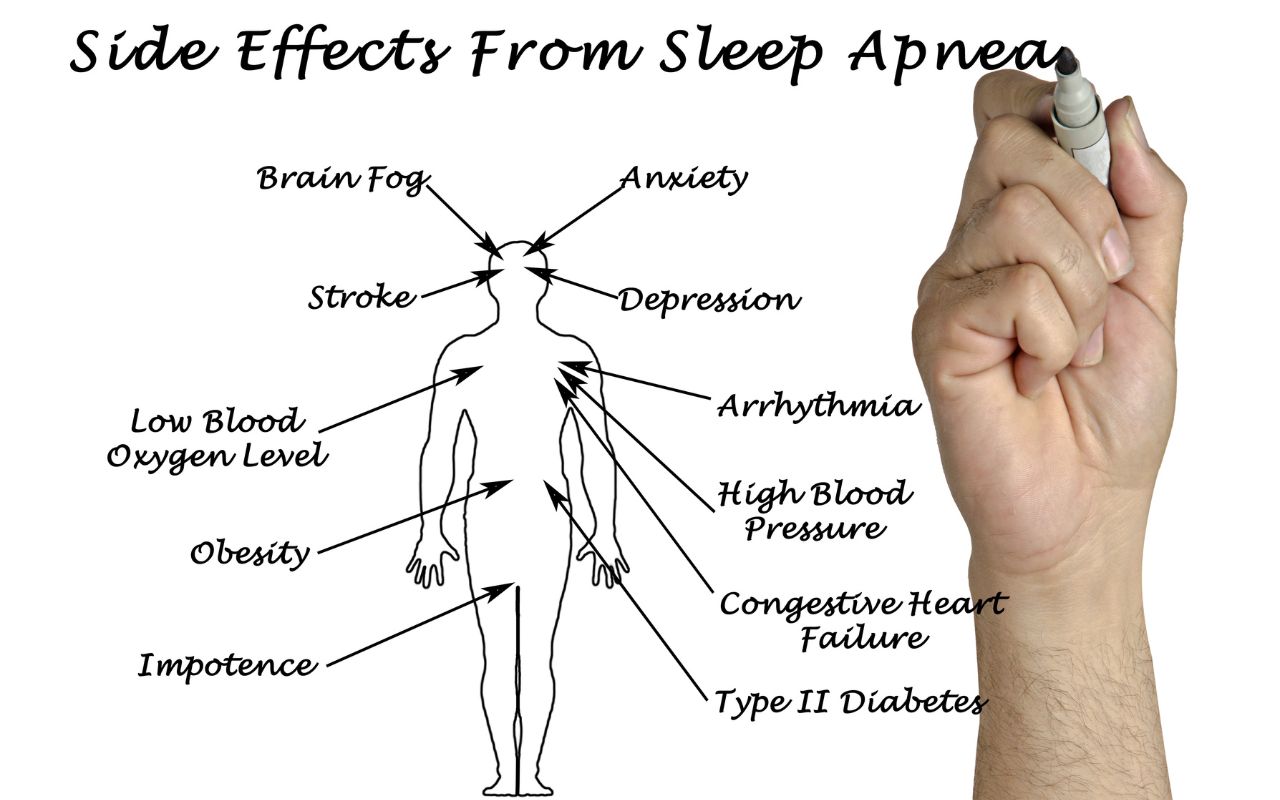
Sleep apnea is a serious condition that can be fatal if not addressed. It has been linked to an increased risk of health problems, including cardiovascular diseases like high blood pressure, stroke, heart failure, heart disease, and abnormal heartbeat. It also increases the risk of car accidents caused by drowsiness when driving.
Other considerations include the impact it has on your sleeping partners or, depending on how loud you snore, your entire family. Poor sleep impacts their health, as well as their ability to focus, do well at work and at school, and feel up to doing the things they love.
If you or your sleep partner suspects you have sleep apnea, call today at 905-775-5307 or click here to request an appointment.
